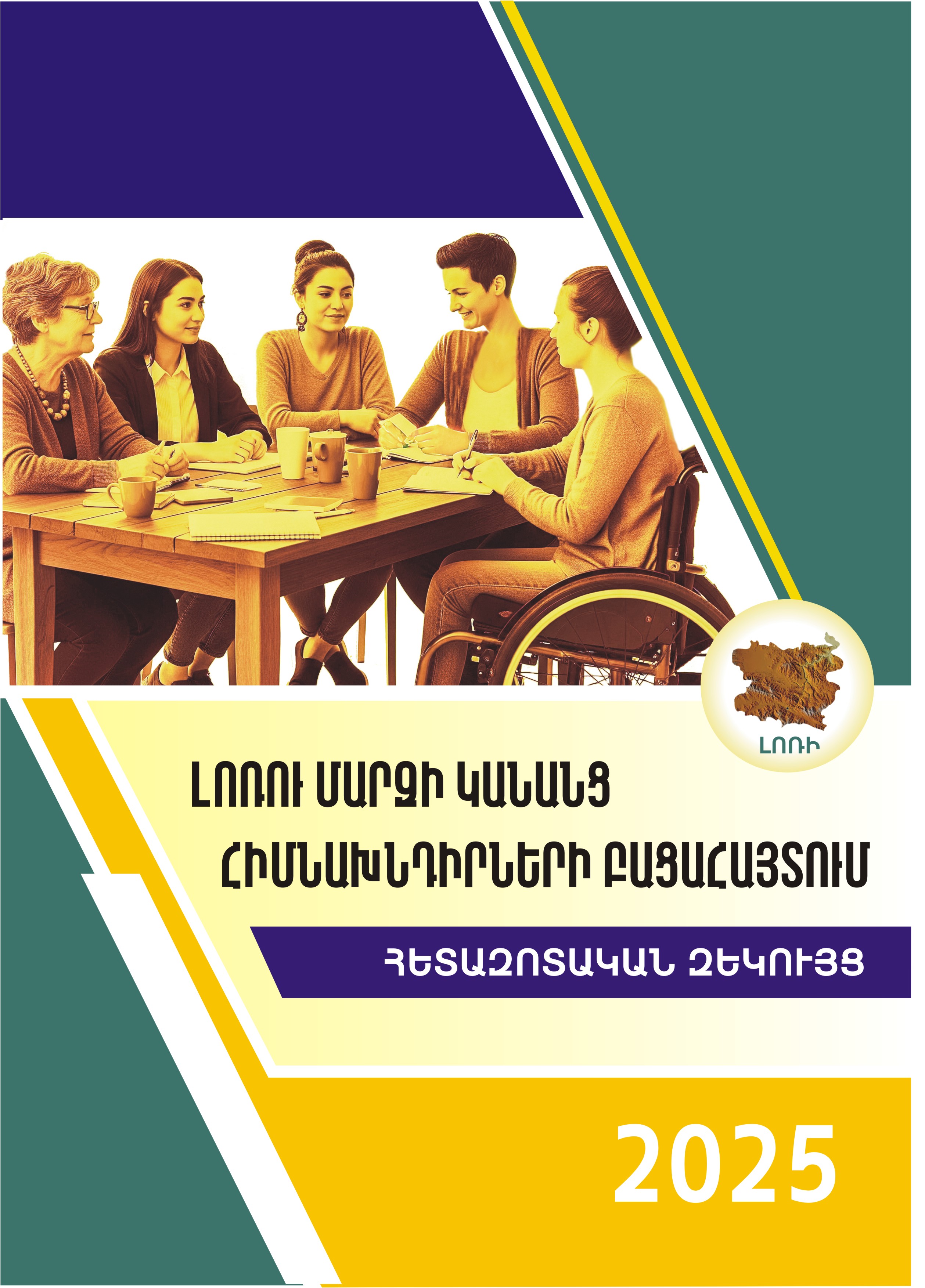SPITAK HELSINKI GROUP HUMAN RIGHTS NGO
SPITAK HELSINKI GROUP HUMAN RIGHTS NGO




In March-July 2025, the Spitak Helsinki Group human rights NGO conducted a study aimed at identifying women's issues in Lori region, which was summarized in the report. It includes a comprehensive study of women's issues in Lori region and their possible solutions.
The aim of the study is to identify the needs of women in Lori region, guided by the principles of human rights, gender equality and inclusiveness, "Leaving No One Behind". Within the framework of the study, focus group discussions were conducted in the Alaverdi, Tumanyan, Spitak, Stepanavan, Vanadzor, Tashir communities of the region, in which a total of 66 women participated.
Taking into account the inaccessibility of information technologies for a certain group of women, surveys were also conducted among 425 women.
Problems were identified, in particular, in the areas of education, labor and employment, health, gender issues, emergency response, political participation and leadership.
The lack of socio-economic opportunities, lack of jobs and cultural stereotypes, especially in rural communities, continue to hinder women's full self-expression and participation in public life,
Although the educational level of women is often high, the employment rate remains low,
Women drop out of school mainly due to marriage or financial difficulties and rarely return to the educational process,
Although health services are available in the area, their quality, accessibility conditions and the volume of targeted programs are not sufficient to meet the diverse needs of women in the community, especially in rural areas,
It is noteworthy that the research clearly highlighted the link between education and becoming a victim of domestic violence. As a rule, women with a low level of education are more often subjected to domestic violence. The situation is a consequence not only of economic dependence, but also of insufficient awareness of their own rights and protection mechanisms.
In Lori region, women's political involvement is still limited, especially at the decision-making level /community leader/, where men are mainly represented. Although women benefit from the opportunities established by the quota, their political participation and advancement of the agenda of women's issues, their substantive and active participation is often questioned /at the level of council membership/
Divorced women are the most discriminated against. Both the 2017 and 2025 reports state that the desire of both widowed and divorced women to remarry is reprehensible. It is sad to note that the attitude in this regard has not changed in 8 years.
Representatives of the LGBTQ+ community remain inconspicuous in order to avoid facing negative attitudes.
There is a noticeable positive attitude towards displaced persons from Artsakh and national minorities, but the attitude towards women with disabilities varies, from sensitive, indifferent to extremely insensitive and discriminatory.
The research also includes recommendations, the authors of which are the women who participated in the research. In this way, the authors of the research aimed not only to record the existing challenges, but also to contribute to the protection of women's rights and opportunities by promoting political, social and institutional changes.
The project was implemented with the support of the Swedish Kvinna till Kvinna Foundation.
The full report is attached.



If you like the work we have done and would like to support us in expanding our practice, you can make a voluntary donation.
